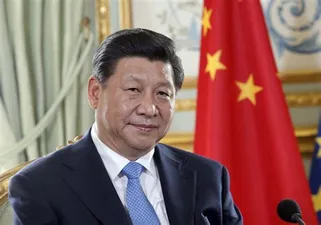
As Xi Jinping began his unprecedented third term, the political climate in China remains uncertain. A mix of economic slump and complex policies is making the wealthy rethink their stay in the country, reported modern diplomacy.
The drive to reign in the economic influence of China’s private sector has diminished private sector expansion and business confidence. After receiving a unanimous endorsement from the National People’s Congress, President Xi Jinping was re-elected as president for a third term on March 10, effectively cementing his status as the country’s most powerful leader since Mao Zedong. His drive to reign in the economic influence of China’s private sector has diminished private sector expansion and business confidence, reported modern diplomacy.
The regulatory policies unleashed in the past two years are unlikely to be relaxed anytime soon. Speaking to delegates on March 6, he reminded business leaders of their responsibilities to adhere to the law and support “common prosperity,” clearly indicating that in the campaign to makeover the economy the wealthy might yet be unsparingly targeted.
Under President Xi Jinping’s stringent wealth crackdown, there are fears of arbitrary detention, expropriation, or at the least trumped-up charges. These anxieties are fueling an emigration trend among the Chinese ultrarich.
Of the 445 people who lost their billionaire status last year, the majority, almost 230 were from China, according to the recently released Hurun Global Rich List for 2023.
Beijing’s crackdown on major tech companies which began in 2021, continues to hurt the country’s super-rich. Tencent owner Ma Huateng lost three points and was placed at 31 on the list. Jack Ma Yun, the founder of China’s e-commerce giant Alibaba Group Holding, dropped 18 points to 52nd place from 34th a year earlier. ByteDance owner Zhang Yiming is down by 11 points alongwith CATL chairman Robin Zeng Yuqun whose worth dropped by 13 points, reported modern diplomacy.
Other leading Chinese entrepreneurs to drop on the superrich list included Netease CEO Ding Lei who was down 9 points and placed at 46th place tying with He Xiangjian co-founder of Midea, one of China’s largest appliance makers who fell 11 points.
Moreover, frustrations over lingering COVID-Zero policies, censorship, economic stagnation and hardships, led to rare yet legitimate protests in China which ultimately only led to a deepening crackdown on dissenters.
Amidst increasingly antagonistic international relations, wherein Chinese companies are facing harsh scrutiny both domestically and by the US had curbed corporate enthusiasm.
The China-US has intensified, with President Joe Biden’s administration seeking to curb tech exports to undercut the progress of Beijing’s technological and military advances. With several Chinese companies and other organisations on the US Entity List, prohibiting them from using strategic American technologies, the crackdown on China’s chip industry is beginning to bite, reported modern diplomacy.
A subsidiary of ByteDance TikTok which has over 150 million American users, is under greater scrutiny accentuated by the dramatic congressional hearing of its CEO Shou Zi Chew last week.
Chinese companies are facing equally harsh scrutiny and consequences in other destinations. Amid concerns over China’s involvement in critical UK infrastructure, the UK government has removed China’s state nuclear company out of the nuclear power plant project on the Suffolk coast.
It is unlikely that with the current economic slowdown, the common prosperity campaign will help bridge the gap between the rich and the poor. Meanwhile, the brutal crackdown by Xi Jinping will have lasting effects and cause further damage to its economy, reported modern diplomacy.
Even some of China’s most popular media stars find themselves under the scanner of the “common prosperity” campaign to correct wealth inequality. In an effort to rein in the prevailing consumption culture in China, stars like Zheng Shuang, Zhao Wei, internet celebrity Viya, find themselves facing financial penalties and even arrest as in the case of Liu Xiaoqing, one of the most famous actresses in China, reported modern diplomacy.
Such relentless targeting of media stars who draw traffic and drive up consumption is making merchants and brands at Alibaba and across a number of its rivals’ platforms nervous.